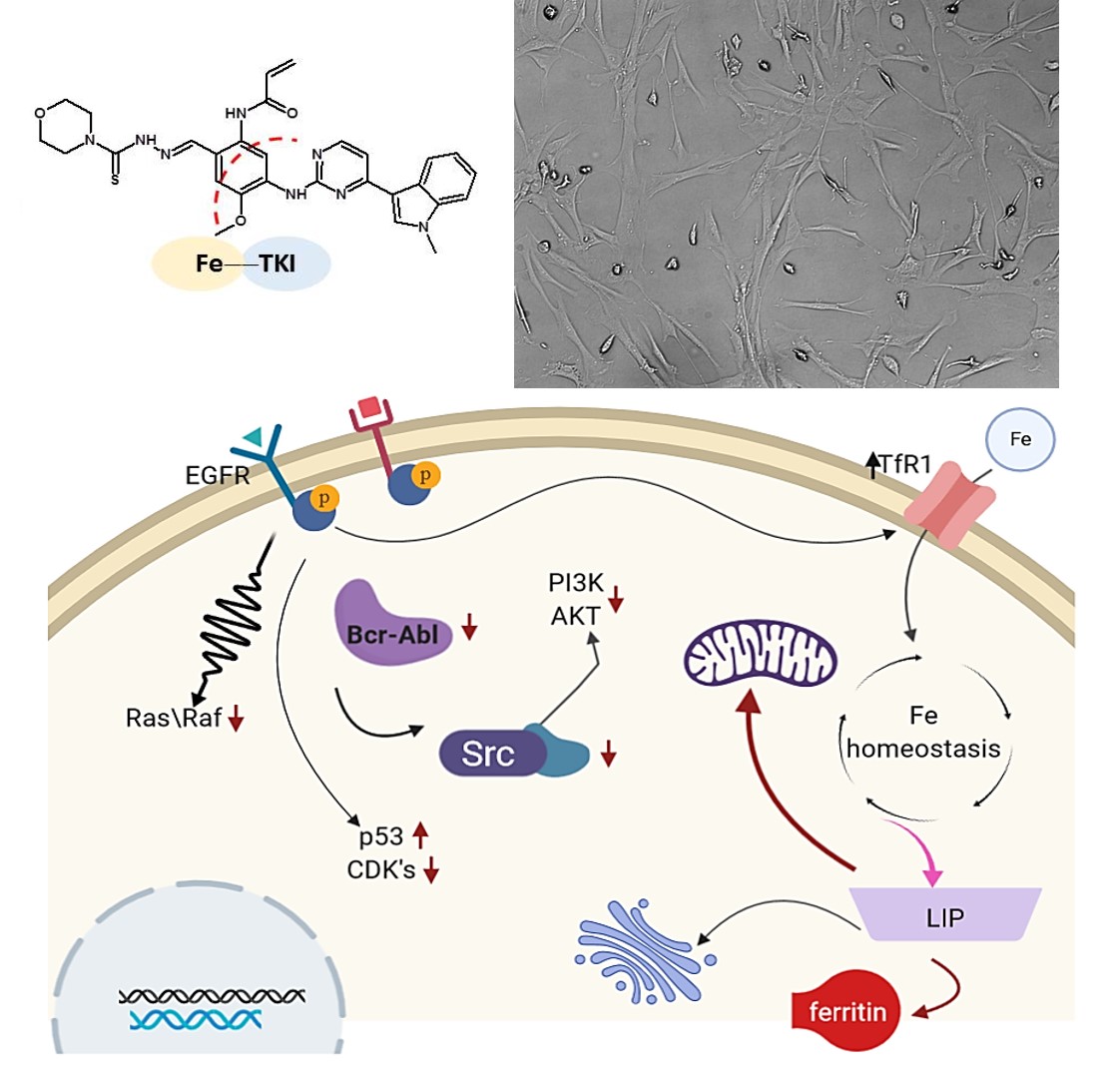PHD STUDENT IN THE DOCTORAL SCHOOL – CALL FOR APPLICATIONS
Iron chelators as tyrosine kinase inhibitors - a new strategy for the treatment of glioblastoma multiforme
Unit of the project realization: Faculty of Science and Technology – University of Silesia in Katowice
Unit realizing the PhD student education: Doctoral School at the University of Silesia in Katowice
PhD student will be responsible for biological studies on in vitro model. The scope of work will include determination of the cytotoxicity against a panel of tumor and normal cells and investigation of the mechanism of action based on the assumptions of the grant.
Research will be carried out in the frame of the project „Iron chelators as tyrosine kinase inhibitors – a new strategy for the treatment of glioblastoma multiforme” (PRELUDIUM BIS, 2020/39/O/NZ5/02342), financed from National Science Centre under management of dr hab. Anna Mrozek-Wilczkiewicz, prof. UŚ
Duration of the scholarship: 48 months
Scholarship amount:
4,266.58 PLN per month until the month in which the doctoral student’s mid-term evaluation at the doctoral school is conducted.
5,119.89 PLN per month after the month in which the student’s mid-term evaluation at doctoral school is conducted.
The total budget of the scholarship is 264,000 PLN.

Project description:
The goal of this project is to investigate the impact of chelators with the ability to inhibit tyrosine kinases on key cellular processes. This project focuses on one of the most aggressive cancer, glioblastoma multiforme (GBM). The epidermal growth factor receptor (EGFR) belongs to the receptor tyrosine kinases (RTKs) family. The presence of mutations in the EGFR region results in increased proliferation and resistance to therapy with older generation of the tyrosine kinase inhibitors (TKIs). One of the most common mutation in the extracellular domain of the EGFR receptor is EGFR variant III (EGFRvIII), characteristic of GBM. It is also worth mentioning that the current knowledge of GBM has many gaps in understanding the origin of the tumor, its heterogeneity and the specificity of the surrounding tissues. Therefore, in the current project, we plan to perform experiments on patient-derived cell lines and 3D spheroid models that reflect the actual tumor conditions. GBM therapy faces the problem of the insufficient drug penetration through the blood-brain barrier. Currently, only osimertinib is a third-generation EGFR inhibitor that penetrates the blood-brain barrier. Iron metabolism is closely related to the EGFR pathway, which seems to be particularly important in the development of GBM. Based on our previous experience, we designed novel multi-targeted drugs (named FeTKIs) by combining iron (Fe) chelation functionality with tyrosine kinase inhibition (TKI). FeTKIs are novel osimertinib analogs with the potential to inhibit EGFR and the ability to bind iron ions. We suggest that this approach will impact several molecular targets and aspects of GBM treatment.
In this project, the PhD student will perform the following research tasks:
- investigation of the cellular response to the incubation with FeTKIs, which are characterized by good metal ion chelating ability, EGFR inhibition and sufficient penetration of the blood-brain barrier
- testing the specificity of FeTKIs against EGRFvIII mutation
- comparison of the results obtained on commercially available cell lines with cells derived from patients (studies on traditional monolayer cultures and 3D spheroids)
Requirements:
- MSc diploma in biotechnology, biology, biophysics, medical physics, medicinal chemistry or related science.
- Knowledge of the basic cell biology and human genetics and molecular biology.
- Experience in cell culture, PCR, RT-qPCR, ELISA, flow cytometry or Western Blot is welcome.
- Good written and oral communication skills in English.
- High motivation to conduct scientific research and ability to work in a team.
- Scientific achievements, especially papers published in science journals and conference presentations will be an additional asset.
Required documents:
- Motivation list with a description of the scientific interests
- CV
- List of scientific publications
- Copy of the MSc diploma
- Recommendation opinion from current supervisor
Formal requirements:
Candidates should register in IRK system and select „ Doctoral School – admission by grant and implementation doctorate program”. https://irk.us.edu.pl/
Documents should be delivered till 31.08.2021 to an e-mail: anna.mrozek-wilczkiewicz@us.edu.pl
In case of any questions, before the formal application please contact to the grant leader for the e-mail address given above.
Documents will be rated by the commission, led by the project leader. Admission will be carried out according to the NCN regulations. Admission can be carried out both in Polish and in English. Meeting will be organized on 06.09.2021 in the Doctoral School office / on-line. Final decision will be sent to candidates via e-mail till 07.09.2021.





